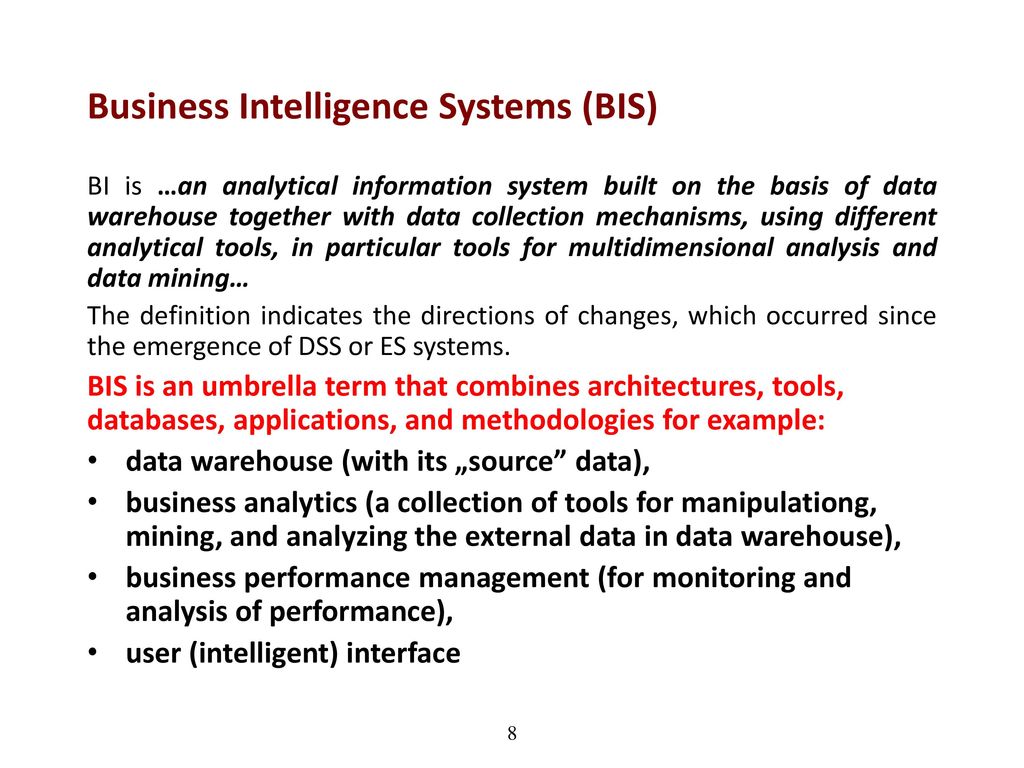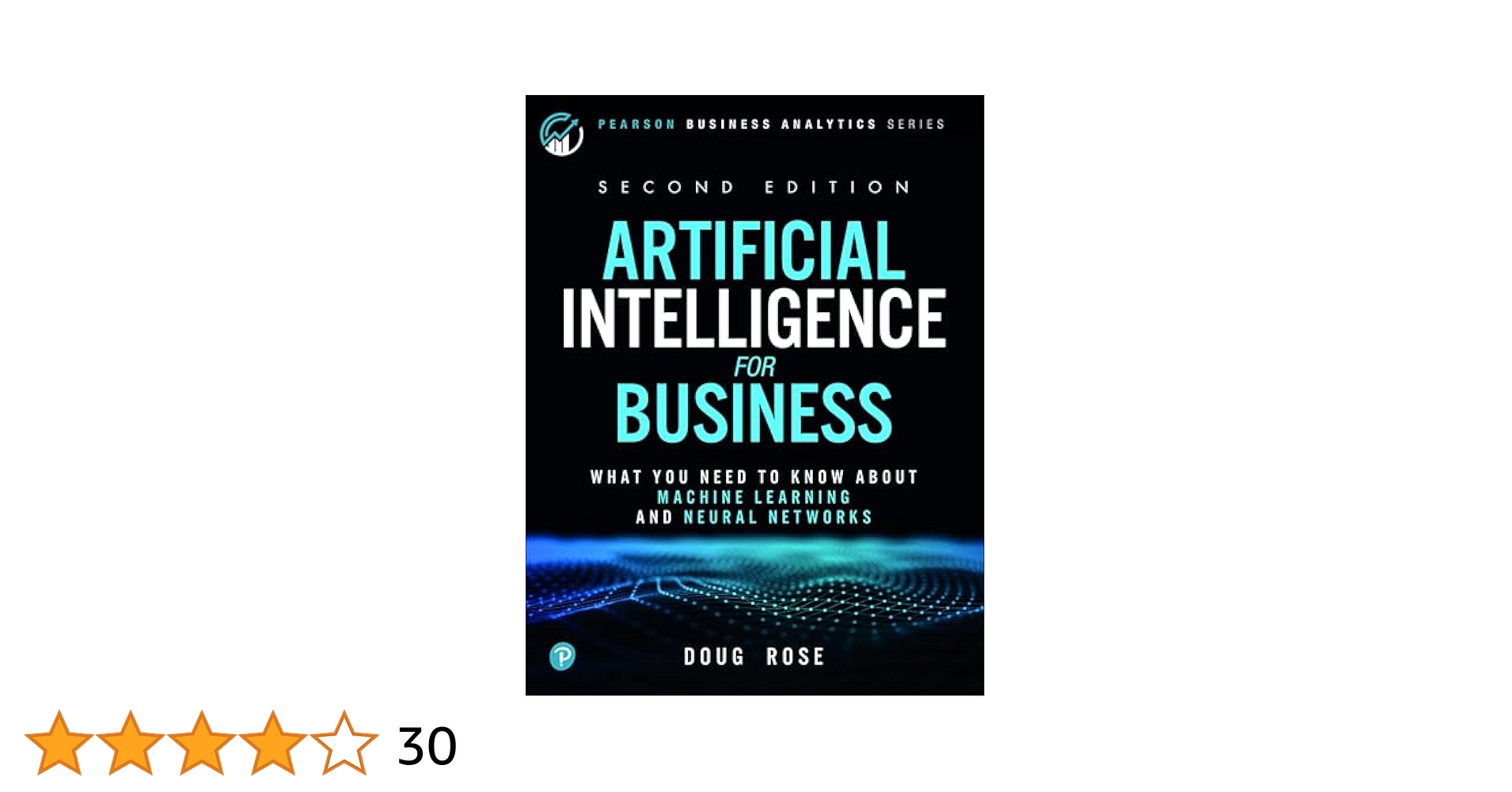Business Intelligence: Definition
In the ever-evolving business world, where data reigns supreme, business intelligence (BI) has emerged as an indispensable weapon in the arsenal of successful enterprises. Simply put, BI is the art of transforming raw data into actionable insights, empowering businesses to make informed decisions and stay ahead of the competition.
BI involves a multifaceted process that begins with the collection of data from diverse sources, including internal systems, market research, and customer interactions. This vast ocean of data is then integrated and cleansed to ensure its accuracy and consistency. The next step is analysis, where sophisticated tools are employed to uncover hidden patterns, trends, and correlations within the data.
The ultimate goal of BI is to provide decision-makers with a comprehensive understanding of their business. Through interactive dashboards and reports, BI tools present insights in an easily digestible format, highlighting key performance indicators (KPIs) and areas for improvement. Armed with this knowledge, businesses can make data-driven decisions that drive growth, optimize operations, and enhance customer satisfaction.
Business Intelligence: A Metaphor for Success
Imagine a ship navigating through treacherous waters. Without a compass or a chart, the ship is destined to flounder. BI is like that compass and chart, providing businesses with the clarity and direction they need to navigate the ever-changing business landscape.
Another apt analogy is that of a doctor diagnosing a patient. The doctor collects symptoms, conducts tests, and analyzes the results to identify the underlying condition. Similarly, BI helps businesses diagnose their strengths and weaknesses, allowing them to develop effective strategies for improvement.
Conclusion
In a world where data has become the new currency, business intelligence has become an essential investment for businesses that aspire to succeed. It’s the key to unlocking the hidden potential within data, empowering organizations to make informed decisions, optimize operations, and stay ahead of the competition. So, if you’re not already leveraging BI, it’s time to set sail and embrace the transformative power of data.
**Business Intelligence: A Guide to Informed Decision-Making**
Business intelligence (BI) has emerged as a cornerstone of modern business practices, empowering organizations to harness data and gain invaluable insights into their operations. BI involves the systematic collection, analysis, and presentation of data, enabling businesses to make informed decisions, streamline processes, and stay ahead of the competition.
**What is Business Intelligence?**
Simply put, BI is the process of transforming raw data into actionable information. It involves gathering data from various sources, such as internal systems, customer surveys, and market research. This data is then analyzed using sophisticated tools and techniques to identify trends, patterns, and anomalies. The insights gleaned from this analysis help businesses understand their customers, optimize operations, and make data-driven decisions.
Importance of Business Intelligence
The importance of business intelligence cannot be overstated. BI empowers businesses to:
– **Make informed decisions:** BI provides a comprehensive understanding of market trends, customer behavior, and operational performance, enabling businesses to make informed decisions based on data rather than guesswork.
– **Identify opportunities and threats:** By analyzing data, businesses can identify emerging opportunities and potential threats, allowing them to proactively adapt their strategies to stay ahead of the competition.
– **Optimizes operations:** BI provides valuable insights into operational efficiency, helping businesses identify bottlenecks, eliminate waste, and streamline processes to enhance productivity.
– **Gain a competitive edge:** In today’s data-driven business landscape, BI has become a key differentiator. Businesses that leverage BI effectively gain a significant advantage over their competitors by making smarter decisions, optimizing operations, and delighting customers.
BI Tools and Techniques
A wide range of tools and techniques are available to support BI initiatives. These include:
– **Data visualization:** Dashboards, charts, and graphs help businesses visualize data and identify trends and patterns.
– **Data mining:** Advanced algorithms uncover hidden insights and patterns in large datasets.
– **Predictive analytics:** Using historical data and statistical models, businesses can forecast future outcomes and make proactive decisions.
– **Artificial intelligence (AI):** AI-powered solutions automate data analysis and provide real-time insights, enabling businesses to respond swiftly to changing market conditions.
Conclusion
In the digital age, business intelligence has become an indispensable tool for businesses seeking to thrive. By harnessing data and transforming it into actionable information, BI empowers organizations to make informed decisions, optimize operations, and gain a competitive edge. As technology continues to advance, the importance of BI will only grow, providing businesses with even greater opportunities to unlock value from their data.
**Business Intelligence: The Crystal Ball for Data-Driven Decisions**
Business intelligence (BI) is an umbrella term encompassing technologies, practices, and methodologies used to transform raw data into meaningful information that empowers organizations to make smarter decisions. It’s like having a crystal ball that grants insight into the past, present, and future of your business. With BI, you can cut through the noise and identify patterns, trends, and correlations that would otherwise go unnoticed.
Benefits of Business Intelligence
BI offers a cornucopia of benefits, including:
**Improved Decision-Making:** BI provides you with reliable, up-to-date data that you can use to make informed decisions. It’s like driving a car with a clear windshield instead of fumbling in the dark.
**Increased Efficiency:** BI helps you streamline processes and reduce waste. It’s like having a Swiss army knife of tools that makes every task a breeze.
**Enhanced Customer Satisfaction:** BI empowers you to understand the needs and wants of your customers. It’s like having a direct line to their hearts and minds.
**Better Understanding of Market Dynamics:** BI gives you a bird’s-eye view of your industry. It’s like having the knowledge of a seasoned strategist right at your fingertips.
**Increased Revenue:** BI can help you pinpoint growth opportunities and optimize your operations. It’s like finding a treasure map to untapped revenue streams.
**Discovering the Power of Business Intelligence: Unlocking Data-Driven Insights for Businesses**
Business intelligence (BI) empowers organizations with the ability to make informed decisions by leveraging data-driven insights. It’s like a treasure trove of knowledge, helping businesses navigate the complexities of the modern market landscape. Unlike gut instincts and hunches, BI provides a solid foundation for strategic decision-making, transforming complex data into actionable information.
**Applications of Business Intelligence**
BI’s versatility extends to a wide array of industries and functions, enabling businesses to:
– **Enhance Sales Forecasting**: BI empowers sales teams to accurately predict future sales, optimizing resources and maximizing revenue potential. It’s like having a crystal ball that guides them towards profitable opportunities.
– **Effectively Segment Customers**: BI helps businesses understand their customers’ unique needs and preferences. By segmenting them into distinct groups, targeted marketing campaigns can be tailored, increasing customer satisfaction and loyalty.
– **Streamline Supply Chain Management**: BI provides real-time visibility into supply chains, allowing businesses to optimize inventory levels, reduce costs, and improve customer service. It’s like having a GPS for your supply chain, ensuring smooth flow and minimizing disruptions.
– **Simplify Financial Analysis**: BI transforms raw financial data into meaningful insights, enabling businesses to identify trends, evaluate performance, and make informed investment decisions. It’s like a financial microscope, revealing opportunities and areas for improvement.
– **Improve Operations**: BI empowers businesses to analyze operational data, identifying inefficiencies and areas for improvement. It’s like a business checkup, helping businesses stay on track and achieve optimal performance.
Business Intelligence: Unlocking Data’s Power for Informed Decision-Making
Business intelligence (BI) is like a crystal ball for businesses, providing a clear view into their operations and enabling them to make decisions based on data, not gut instinct. It’s a powerful tool that collects, analyzes, and presents data from various sources, giving businesses a comprehensive understanding of their performance, customers, and market trends. With BI, businesses can identify opportunities, improve efficiency, and gain a competitive edge.
Challenges of Business Intelligence
Implementing and maintaining a BI system is not without its challenges. Data quality can be a headache, with inconsistencies, missing values, and errors lurking in the shadows. Integrating data from different systems can be like trying to fit square pegs into round holes, especially if they don’t speak the same language. And then there’s the need for skilled professionals who can make sense of the data and translate it into actionable insights. It’s like having a treasure trove of data but lacking the decoder key to unlock its potential.
Benefits of Business Intelligence
Despite these challenges, the benefits of BI far outweigh the obstacles. It’s like having a GPS for your business, guiding you towards success. With BI, businesses can identify areas for improvement, optimize their operations, and anticipate market changes. It’s like having a superpower that allows you to see the future and make informed decisions.
Real-World Examples of BI
To illustrate the transformative power of BI, let’s peek into the world of retail. A major retailer used BI to analyze customer behavior and identify patterns in their purchasing habits. This allowed them to tailor their marketing campaigns and product offerings, resulting in a significant boost in sales. Another example is a healthcare provider that used BI to identify high-risk patients and proactively intervene, leading to improved patient outcomes and reduced costs.
The Future of BI
Business intelligence is constantly evolving, and the future looks bright. With the advent of artificial intelligence (AI) and cloud computing, BI is becoming even more accessible and powerful. AI can automate data analysis, freeing up precious time for businesses to focus on strategy. Cloud computing enables businesses to tap into vast amounts of data and gain insights that were previously impossible.
So, there you have it – a comprehensive guide to business intelligence. It’s like a secret weapon for businesses, giving them the power to unlock the treasures of data and make informed decisions. By embracing BI, businesses can navigate the challenges, reap the benefits, and stay ahead in the competitive world.
Saran Video Seputar : business intelligence definition




Leave a Reply